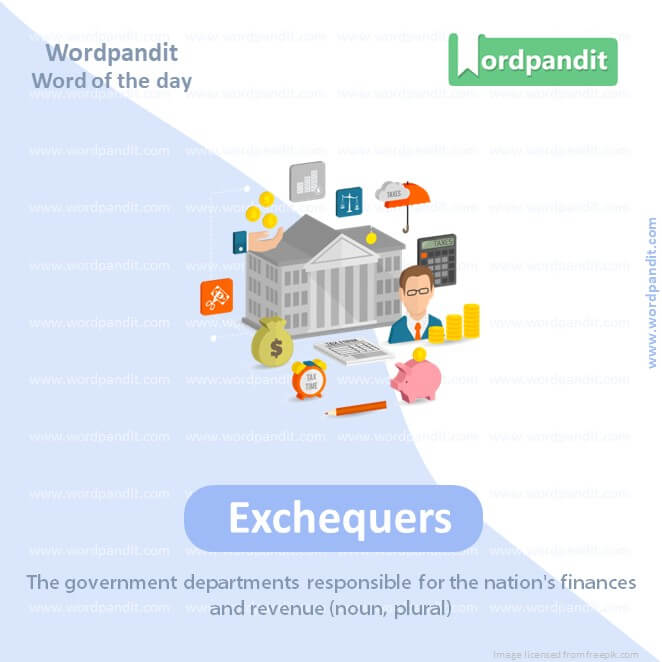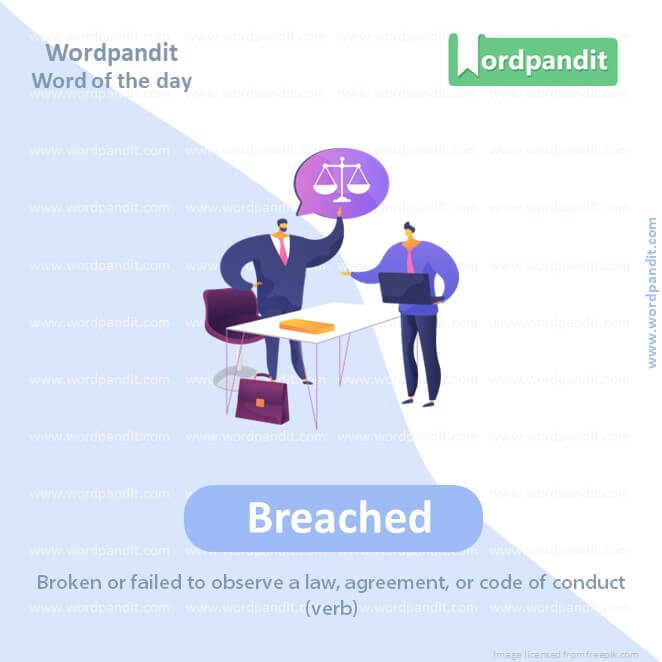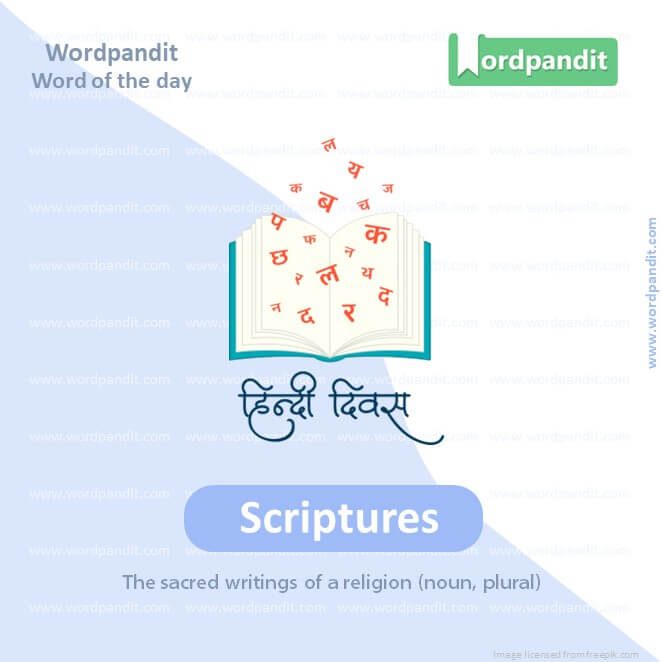Daily Vocabulary Words: List of Daily Used Words in Leading Indian Newspapers
Hi there. Welcome to this special section @ Wordpandit. Our endeavour here is straightforward: highlighting daily vocabulary words that you would come across in leading newspapers in the country. We have included the following newspapers in our selection:
• The Times of India
• The Economic Times
• Hindustan Times
• Mint
• Indian Express
We are putting in extensive work to develop your vocabulary. All you have to do is be regular with this section and check out this post daily. This is your repository of commonly used words; essentially, we are posting a list of daily used words. Hence, this has significant practical application as it teaches you words that are commonly used in leading publications mentioned above.
Visit the website daily to learn words from leading Indian newspapers.
WORD-1: Mitigation
CONTEXT: Reducing emissions is called mitigation in scientific literature.
SOURCE: Hindustan Times
EXPLANATORY PARAGRAPH: Mitigation is like when you put a bandage on a small cut to make it feel better. It means trying to make something less harmful, serious, or bad.
MEANING: The action of reducing the severity, seriousness, or painfulness of something (noun)
PRONUNCIATION: mit-i-gay-shuhn
SYNONYMS: Alleviation, Reduction, Lessening, Relief, Diminishment, Moderation
USAGE EXAMPLES:
1. They discussed strategies for the mitigation of environmental damage.
2. The mitigation measures helped reduce pollution.
3. He argued for mitigation in the court case.
4. Flood mitigation efforts were underway in the region.
WORD-2: Proclivities
CONTEXT: Gandhi is probably talking about her sexual proclivities, and the suppression of her identity.
SOURCE: Times of India
EXPLANATORY PARAGRAPH: Proclivities are like when you really like drawing or playing soccer more than other things. It means a natural liking or tendency to do something regularly.
MEANING: Natural tendencies to behave in a certain way (noun, plural)
PRONUNCIATION: proh-kliv-i-tees
SYNONYMS: Tendencies, Inclinations, Predispositions, Penchants, Propensities, Leanings
USAGE EXAMPLES:
1. He has artistic proclivities.
2. Her proclivities for adventure made her a great explorer.
3. They shared similar musical proclivities.
4. The study examined the proclivities of consumers.
WORD-3: Suppression
CONTEXT: Gandhi is probably talking about her sexual proclivities, and the suppression of her identity.
SOURCE: Times of India
EXPLANATORY PARAGRAPH: Suppression is like when you try to hold in a giggle when you’re supposed to be quiet. It means stopping or holding back something from happening or being expressed.
MEANING: The action of stopping or restraining something from being expressed, revealed, or operating (noun)
PRONUNCIATION: suh-pre-shuhn
SYNONYMS: Restraint, Inhibition, Quashing, Stifling, Subdual, Confinement
USAGE EXAMPLES:
1. The government was criticized for the suppression of free speech.
2. The suppression of the evidence was controversial.
3. They used medication for the suppression of the symptoms.
4. The rebellion faced suppression by the authorities.

WORD-4: Exchequers
CONTEXT: Where political parties don’t bankrupt state exchequers by making poll guarantees that can’t be kept.
SOURCE: Hindustan Times
EXPLANATORY PARAGRAPH: Exchequers are like the big piggy banks where countries keep their money. It means the government departments that deal with money and finances in a country.
MEANING: The government departments responsible for the nation’s finances and revenue (noun, plural)
PRONUNCIATION: eks-chek-ers
SYNONYMS: Treasuries, Finance Departments, Revenue Services, Budget Offices, Fiscal Authorities
USAGE EXAMPLES:
1. The exchequers reported an increase in tax collection.
2. They discussed the policy with officials from the exchequers.
3. The exchequers were auditing government spending.
4. He worked for the exchequers for many years.

WORD-5: Antagonists
CONTEXT: Where we ensure a level playing field between parties as neither cheerleaders nor antagonists but as what we are meant to be: Chroniclers of exciting times.
SOURCE: Hindustan Times
EXPLANATORY PARAGRAPH: Antagonists are like the characters in movies who are always trying to stop the heroes from saving the day. It means people who oppose or are hostile to someone else.
MEANING: People who actively oppose or are hostile to someone or something; adversaries (noun, plural)
PRONUNCIATION: an-tag-uh-nists
SYNONYMS: Opponents, Adversaries, Enemies, Rivals, Foes, Challengers
USAGE EXAMPLES:
1. In the story, the hero faces several antagonists.
2. The debate featured the main antagonists arguing fiercely.
3. She stood up to her antagonists with confidence.
4. The movie introduces a new antagonist in the sequel.

WORD-6: Breached
CONTEXT: The year 2023 will go down as the year when we breached (albeit temporarily) the 2°C warming threshold for two consecutive days on November 17 and 18.
SOURCE: Hindustan Times
EXPLANATORY PARAGRAPH: Breached is like when someone breaks a promise or a rule, like when you agree not to eat cookies before dinner but someone does it anyway. It means breaking a law, agreement, or code of conduct.
MEANING: Broken or failed to observe a law, agreement, or code of conduct (verb)
PRONUNCIATION: breeched
SYNONYMS: Violated, Infringed, Broken, Transgressed, Disobeyed, Contravened
USAGE EXAMPLES:
1. The contract was breached by the company.
2. He breached the school’s code of conduct.
3. Security was breached in the building.
4. The confidentiality agreement was breached.

WORD-7: Scriptures
CONTEXT: Human beings, are defined on the basis of divinity, godhead, god, purity, which is suppressed inside us. Most of our scriptures talk about this.
SOURCE: Times of India
EXPLANATORY PARAGRAPH: Scriptures are like the important stories and lessons that are in holy books of religions, like the Bible or the Quran. They are writings that people of a religion think are very important and sacred.
MEANING: The sacred writings of a religion (noun, plural)
PRONUNCIATION: skrip-chers
SYNONYMS: Holy Writings, Sacred Texts, Religious Texts, Canonical Books, Holy Books, The Word
USAGE EXAMPLES:
1. The priest quoted from the scriptures.
2. They studied different religions and their scriptures.
3. The scriptures are an essential part of their worship.
4. She found comfort in reading the scriptures.

WORD-8: Unequivocal
CONTEXT: The science is unequivocal, the undisputed cause of global warming is the emission of greenhouse gases (GHG), including carbon dioxide (CO2) due to human activities.
SOURCE: Hindustan Times
EXPLANATORY PARAGRAPH: Unequivocal is like when you say “YES!” very clearly and without any doubt when asked if you want ice cream. It means being very clear and leaving no doubt.
MEANING: Leaving no doubt; unambiguous, absolutely clear (adjective)
PRONUNCIATION: un-i-kwiv-uh-kuhl
SYNONYMS: Clear-cut, Unambiguous, Definite, Indisputable, Categorical, Explicit
USAGE EXAMPLES:
1. His refusal was unequivocal.
2. She gave an unequivocal answer.
3. The evidence was unequivocal.
4. He was unequivocal about his intentions.
WORD-9: Obsessing
CONTEXT: Where instead of obsessing with which cricketer got how much money in an IPL auction, we find out how much the cricket board is investing in junior cricket across the country.
SOURCE: Hindustan Times
EXPLANATORY PARAGRAPH: Obsessing is like thinking about your favorite toy all the time and not being able to stop. It means having your mind filled with one idea or thought constantly and intensely.
MEANING: Preoccupying or filling the mind continually, intrusively, and to a troubling extent (verb)
PRONUNCIATION: uhb-ses-ing
SYNONYMS: Preoccupying, Haunting, Consuming, Dominating, Engrossing, Overwhelming
USAGE EXAMPLES:
1. She was obsessing over her upcoming performance.
2. He’s been obsessing about the game all week.
3. They were obsessing over every detail of the plan.
4. She couldn’t stop obsessing about the mistake.
WORD-10: Retaliatory
CONTEXT. Where retaliatory bombings are not in brazen violation of international laws.
SOURCE: Hindustan times
EXPLANATORY PARAGRAPH: Retaliatory is like when someone takes your toy, so you take theirs in return. It means doing something to get back at someone because they did something to you first.
MEANING: Done as a reaction to someone’s actions, especially for revenge or retaliation (adjective)
PRONUNCIATION: ri-tal-ee-uh-tor-ee
SYNONYMS: Vengeful, Reprisal, Reciprocal, Retributive, Avenging, Punitive
USAGE EXAMPLES:
1. The company took retaliatory action against the competitor.
2. He was warned against any retaliatory behavior.
3. The tariffs were a form of retaliatory measure.
4. They feared a retaliatory attack.
Vocabulary Words in English
In the kaleidoscopic world of language, the thread of ‘vocabulary words in English’ weaves a rich tapestry. These words, the building blocks of communication, lend themselves to the eloquence and effectiveness of our speech and writing. Despite their significance, mastering ‘vocabulary words in English’ can sometimes be daunting, but with strategic approach, the process can be greatly simplified.
Learning ‘vocabulary words in English’ goes far beyond rote memorization. It requires an integrated approach that encompasses understanding and using the words. Consuming a diverse range of English materials such as novels, news articles, movies, music, and online content can acquaint you with words in actual use, helping you perceive both their meaning and usage in different contexts.
Furthermore, incorporating memory-enhancing techniques can add impactful strides to your journey of mastering ‘vocabulary words in English’. Methods such as the Leitner System or flashcards can bolster the memory retention of these words. Meanwhile, using mnemonic devices, associating words with unique stories or images, can help in retaining the ‘vocabulary words in English’ in long-term memory.
Another key to deciphering ‘vocabulary words in English’ is by practicing them in real-world contexts. Incorporate the new words into your daily conversations, written emails, or social media posts. Not only will this reinforce the meanings and applications, but also boost your confidence in using them.
In essence, understanding ‘vocabulary words in English’ is a continual journey that calls for persistent commitment, diverse learning approach, and ample practice. As you indulge in this exploration, you will find your command over the ‘vocabulary words in English’ becoming stronger, leading to more confident and dynamic communication. Remember – in the world of language, words are your faithful companions, and the more you engage with them, the more they’ll reveal their richness to you.













